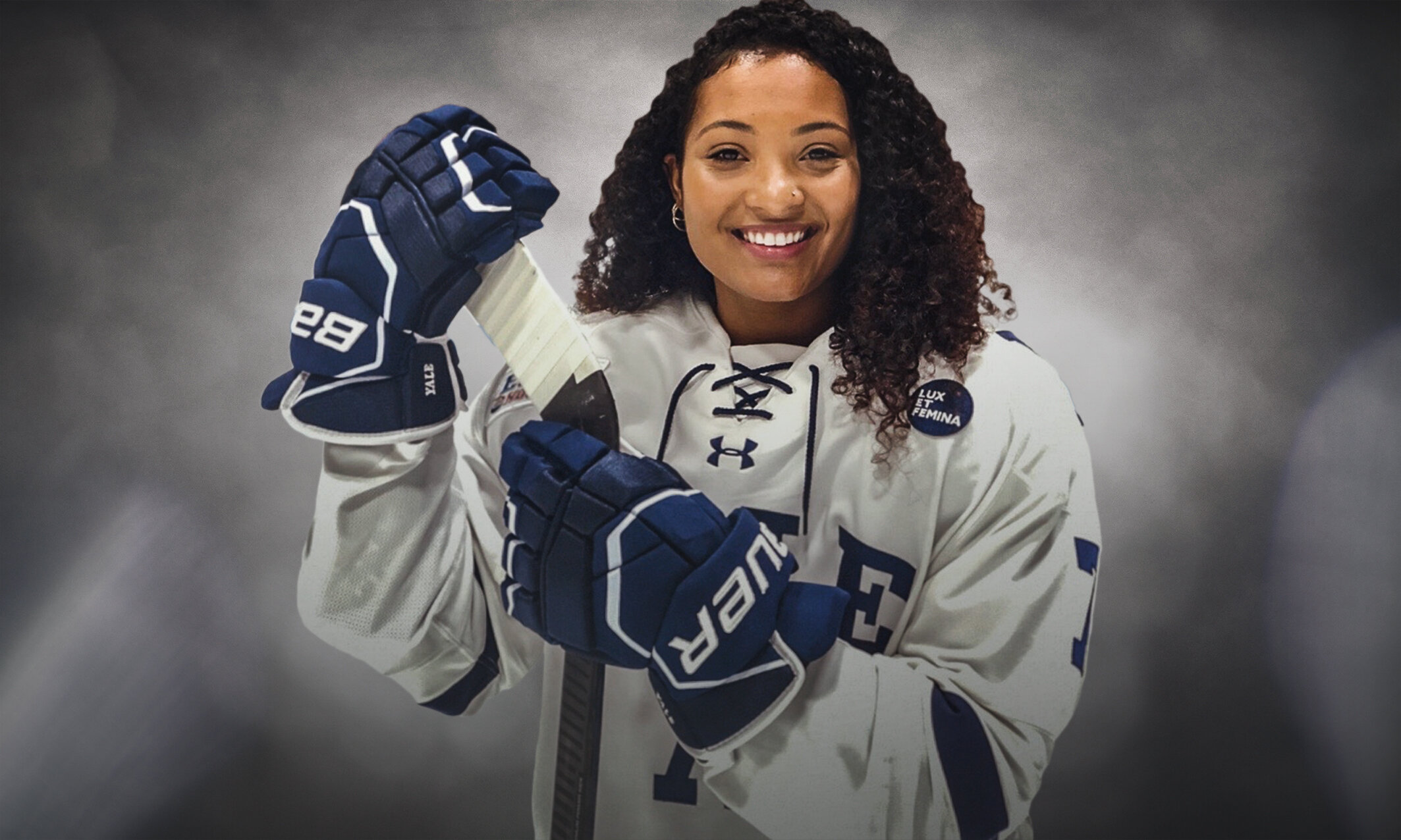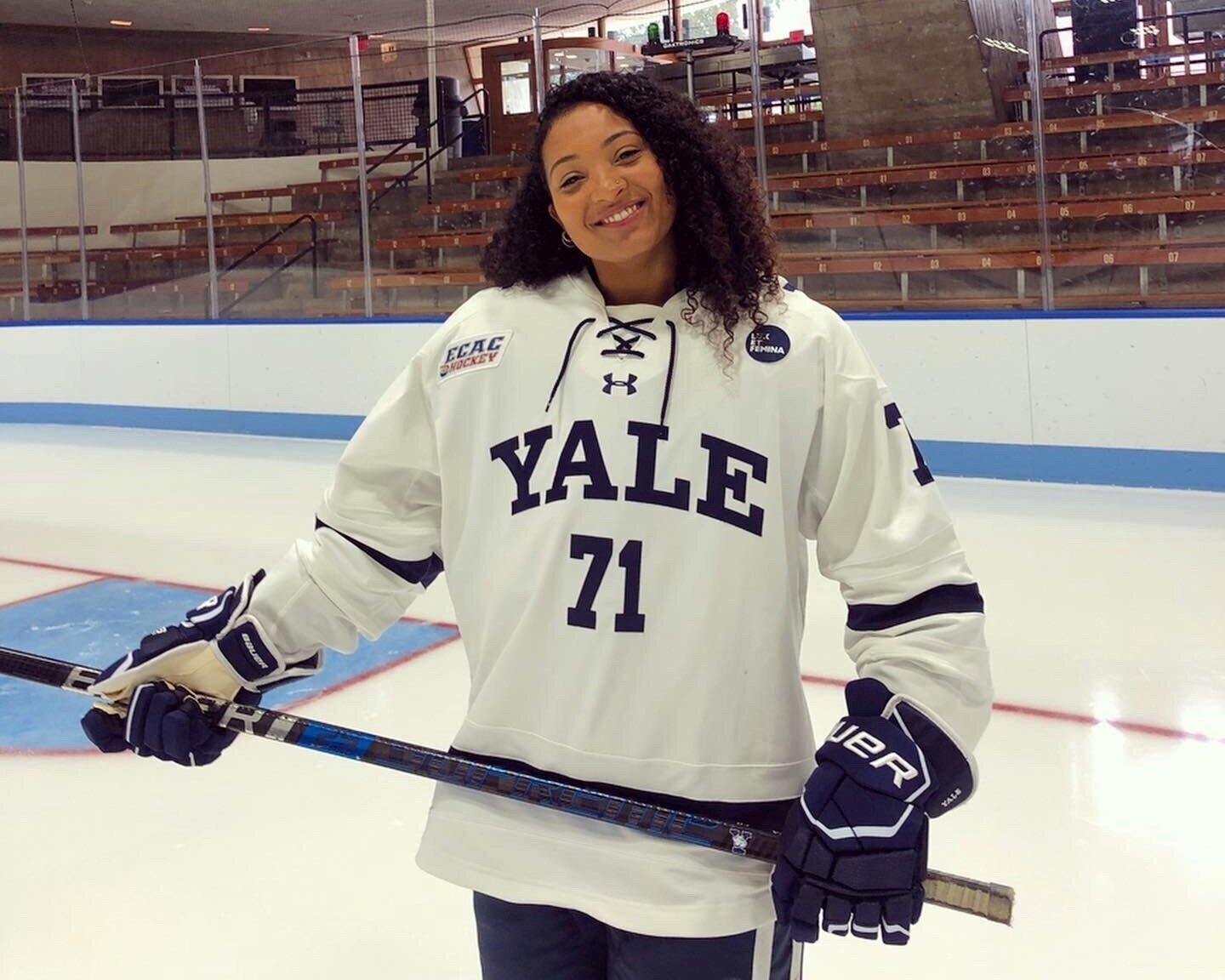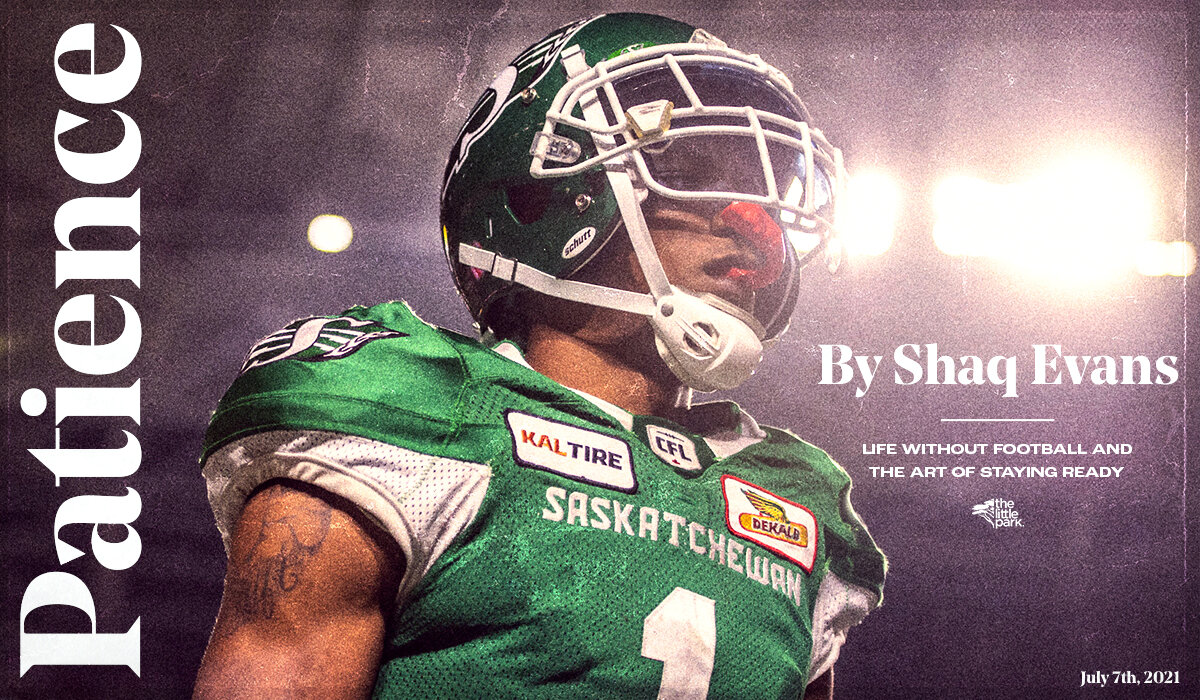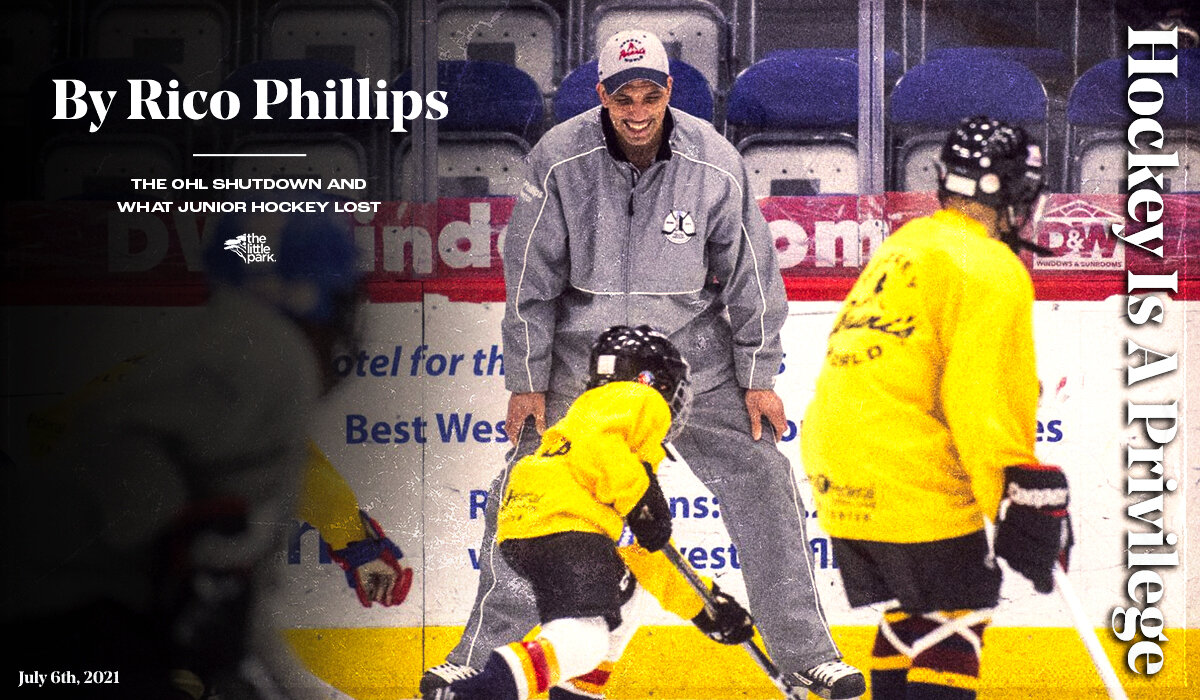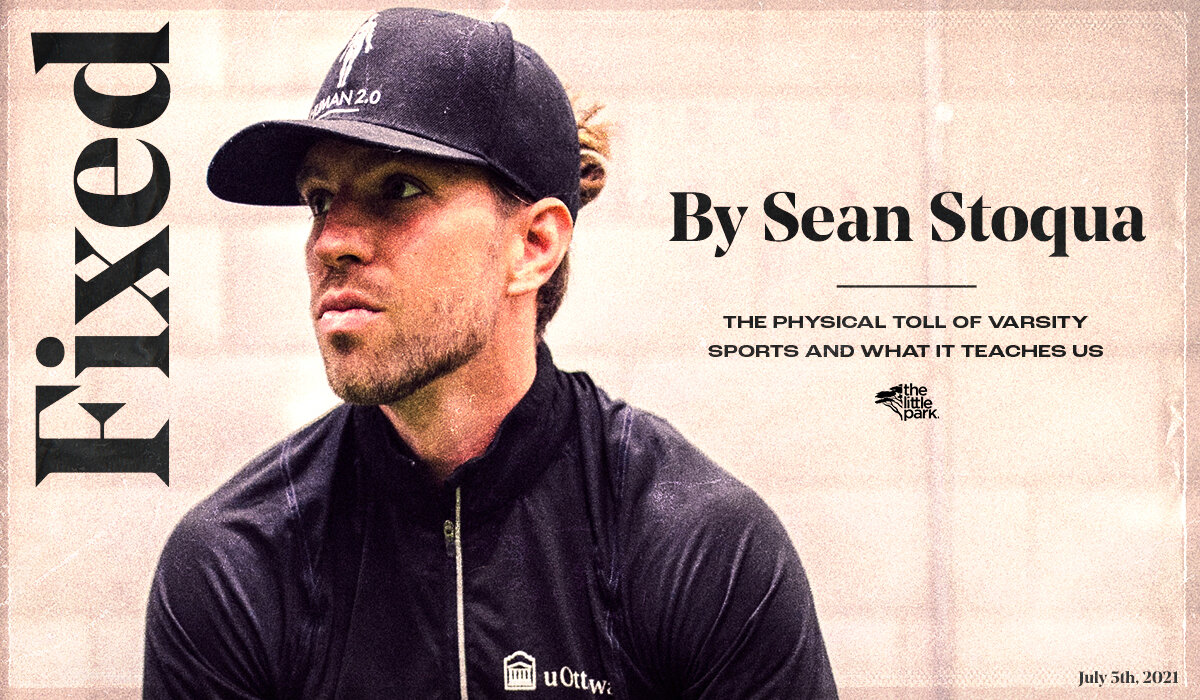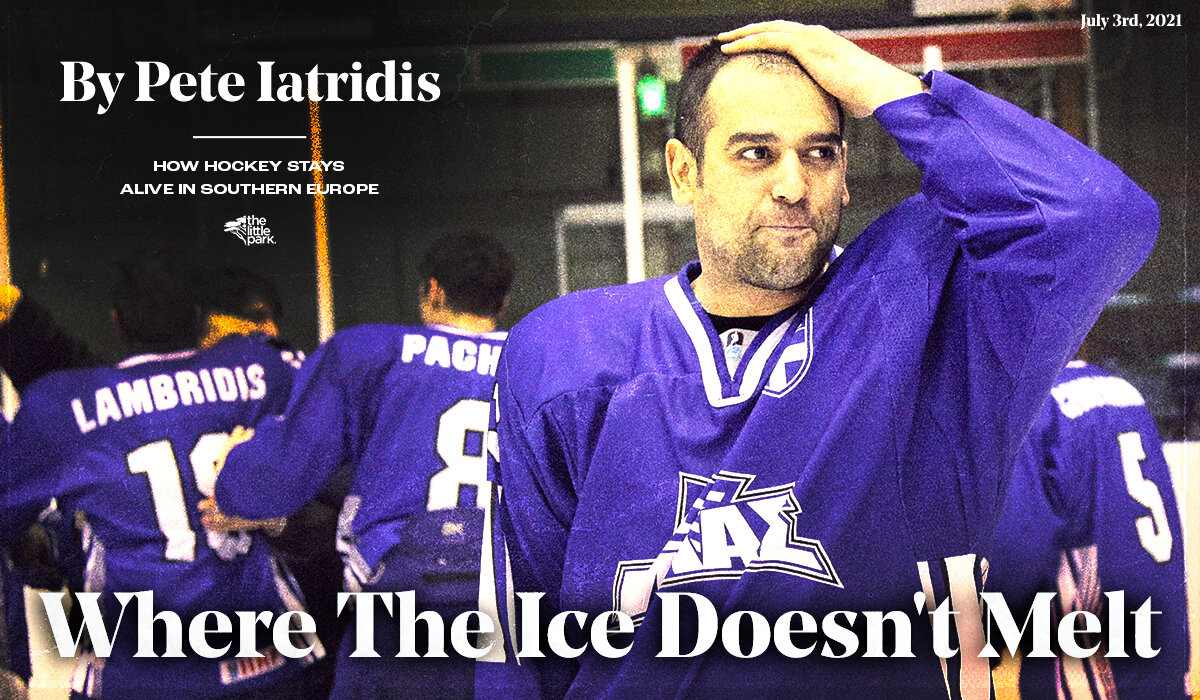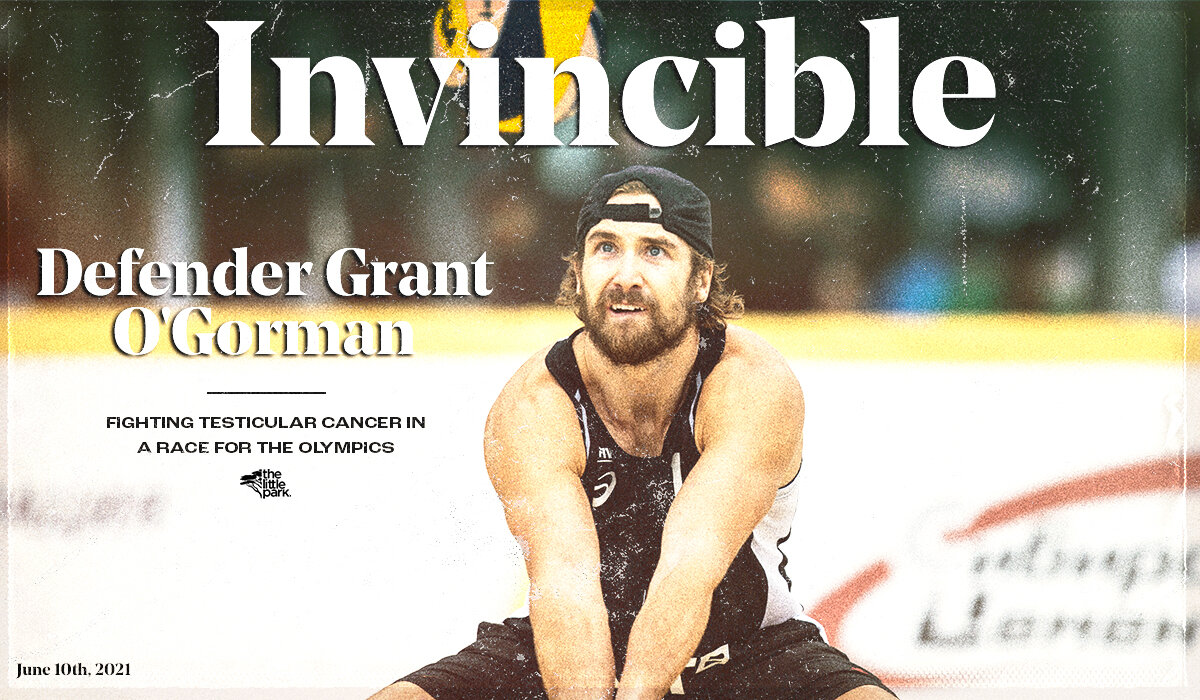I have always questioned my place at the rink. Having come this far -- playing hockey at the NCAA Division I level -- I feel a sense of accomplishment not only through sport, but within my character as well. Now, I feel as though I can speak to how racism in sports affects those who participate and also help others grasp a better understanding as to why this needs to come to an end. Slavery is what has established the Black body at the bottom. Being mixed -- my father Jamaican and my mother Ukrainian – I’ve had my fair share of confusion at the rink with one White parent and one Black. My mother, being white, had a white parent from the opposing team once ask her which one was her daughter. My mom, being so very proud of her children, proudly stated her daughter was No. 71. The parent of the opposing team looked onto the ice, spotted me, and said “I see, cross-breeds make the best athletes, she looks good out there.” This man seemed to think of me as some sort of animal. I am a human being, I am not a dog, nor have I been “crossbred.” Because my teammates lack the understanding of the African-American community and that of white supremacy, they fail to recognize the ideology underlying racist practices often include the idea of humans being subdivided into distinct groups that are different due to their social behavior and their innate capacities along with the idea they can be ranked as inferior or superior. In this case, I am, and always will be, inferior to my White teammates. I’ve felt as though I had to surpass expectations in my sport and classroom to consistently make sure that no doubt could be placed upon me when it came to my coaches and playing time. The doubt I had for myself was enough. In my sport, others would often doubt my ability to play until they saw I was a starter and would often assume I wasn’t as good as the other White girls on my team simply because I am Black and ice skating is not something familiar to most African-Americans. I was a rarity.The pressures I put upon myself from a young age led to an eating disorder from the age of 12 along with mental health problems. Just before becoming a teenager, I was the tallest girl on all my teams and bigger – mostly stronger – than all the boys too. I thought I didn’t look like other girls. I felt like I needed to change this about myself and began dieting and running every day. I said it was to improve at my sport, but the truth was that I was starving myself to look the way I thought I should look. I quickly found out that simply starving myself was not going to work. I would have no energy at practice, my teammates could see my weight loss and questions would be asked. I would starve myself throughout the week, only have a small snack before practices and binge eat on the days I had to play. This left me with what I thought was a balance. I could maintain my weight, eat as little and then as much as I wanted to, all while feeling as if I was in control of how I felt and looked. I hate to admit it, but my eating disorder and habits still follow me to this day. I still, as a female-athlete, feel as though I am unhappy with my body. My large buttocks and thighs, my breasts, my stomach, all do not appeal to me when I look in the mirror. Although these features seem to be appealing to the men around me, I feel as if I do not meet the expectations of myself. I will never be fully satisfied. I am learning though. I’m learning I am Black and I am beautiful. I’m learning that my health matters above all else and as we improve upon our medical knowledge, the impact mental health plays in African-American women and more specifically athletes, can be greater than many other circumstances. I do regret my lack of attention to my mental health. Being an African-American female athlete comes with its challenges as I have experienced this first hand. Stereotypes and stigmatizations have been placed upon Black women and I’ve known from an early age I was grouped into these specific categories. Through sport I feel as if I have found every part of myself: strengths, weaknesses, loves and hates. The only reason I’ve been able to come to terms with my story and mental health struggles is by knowing my body incredibly well as an athlete. I know what it takes to refocus during a game and remain in shape. I’m aware of the hard work needed each day. But what I don’t know is why I was unable to overcome my mental health struggles while playing the sport I love. I excelled from an early age at hockey and was never bothered by the White space I was in each day at the arena. Sure, I thought about what it would be like to have another Black teammate, but this was the last of my worries as I loved the sport so dearly. My attitude and work ethic defied others’ expectations. I am in fact good at what I do and had the opportunity to represent my country on the international stage multiple times as the only person of colour on the team. My success was my way of showing those who doubted my abilities that I was worthy of all I had accomplished. Over the course of my 18-year career, the battles I faced were nothing in comparison to the battles I faced in my own head.The pieces of my mental puzzle seemed to come together after being diagnosed with depression my freshman year of college. It was almost as if I realized why I am the way I am. I knew why I had always seemed to be in a deep dark hole when it came to my mind. Outwardly, I am an outgoing, goofy and loving individual, but in my mind, I was quiet, hurting and unstable. It wasn’t until I began seeking help that I was able to pinpoint the areas of my life that caused me the most pain and pressure.One of the main areas of stress and depression came from hockey. Pushing myself for over 40 hours a week, attending class and submitting homework, while maintaining a positive social life came with its challenges. Despite all this, I enjoyed having a full schedule as it allowed me little time to sit down and let my thoughts wonder within my head. On my bad days, I thought I was not enough for anyone. I felt that I should be adding more responsibilities to my plate to not only meet the high expectations I have of myself, but to distract myself from the sadness I felt inside each time I had a moment to think. I had good days and bad days, but I knew it was my job to show up to the rink, class and my extra circulars each day with a positive and enthusiastic attitude. I would describe myself as a welcoming and caring individual as I am always able to be a listening ear for others, but when it comes to myself, I only let others see what I want them to. I don’t let others in deep enough to know my mental struggles because as a Black female athlete attending an Ivy League institution, I should be nothing but confident, right? It was not until my worst day when I knew I needed to let others into my heart and mind in order for them to understand what I was going through. Thoughts of taking my own life flooded my mind that day as I became overwhelmed at the arena. I didn’t want to go home after practice as I knew I would be alone and with these thoughts I never could have imagined having run through my mind. I knew I should seek help. Finally gaining the mental strength to walk home, I made the effort to use Yale health’s urgent care services. I walked in and was able to speak with a professional about the thoughts I was having and discuss further options for treatment and care for my depression. Growing up, no one ever thought that a girl like me -- beautiful, talented and intelligent -- could have these issues, but that’s not how depression works. After realizing and accepting the amount of help I truly needed, I wondered how many other Black women felt similarly. Slavery, objectification and the sexualization of the Black female body has played a role in the ways Black women today portray themselves and are seen in American society. I tell this story of my own mental health battles and experiences with racism in sport not to obtain sympathy from others, but to display a first-hand example of the struggles Black female athletes face on a daily basis when it involves those who struggle mentally. I challenge for more questions asked, more research done, and more experiences shared within the African-American community. 


